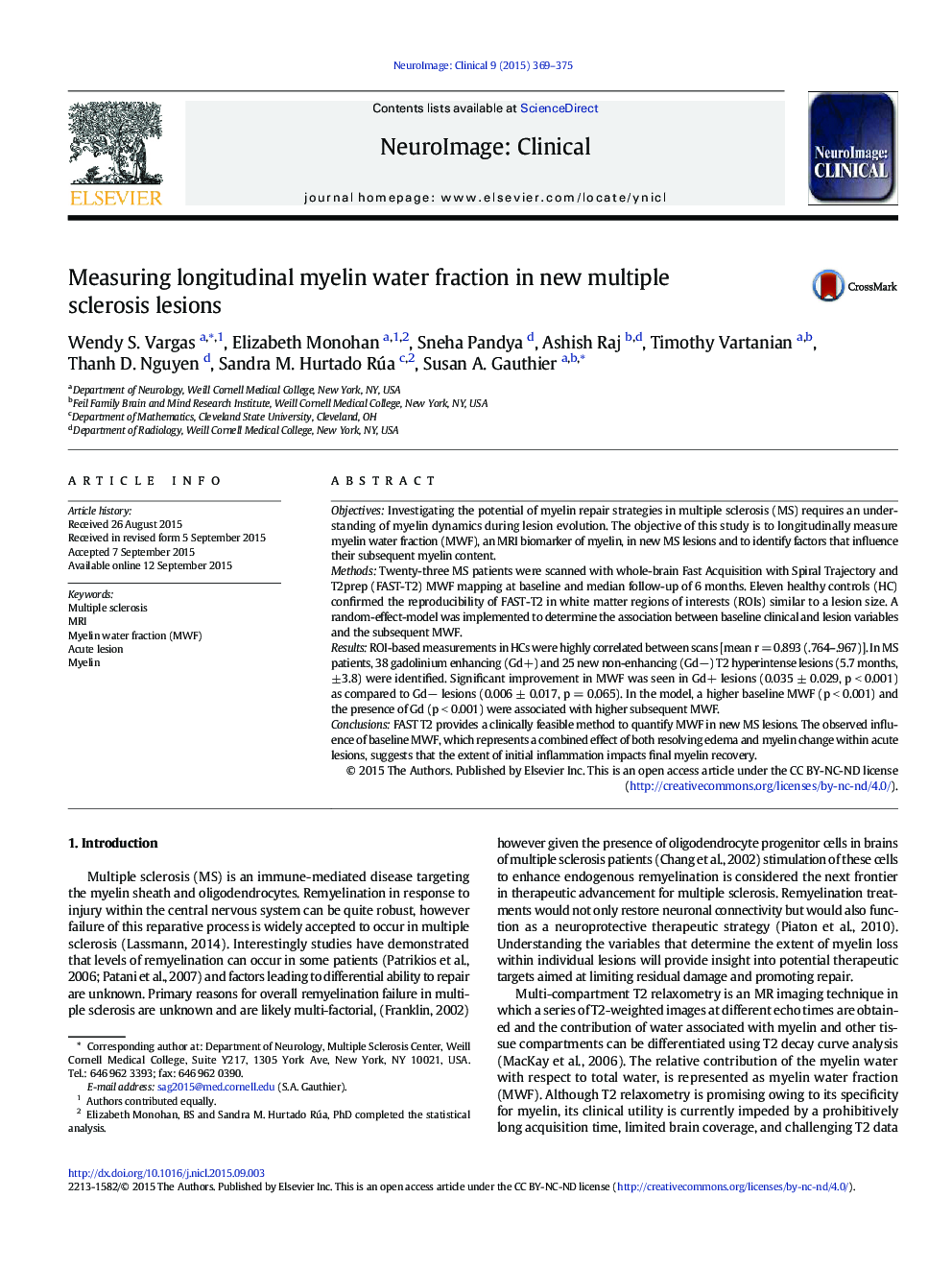| Article ID | Journal | Published Year | Pages | File Type |
|---|---|---|---|---|
| 3075184 | NeuroImage: Clinical | 2015 | 7 Pages |
•FAST-T2 can measure the extent of myelin loss within early MS lesions.•The largest study utilizing an in-vivo MRI method to assess MS lesion change•The majority of change occurs in the earliest stages after MS lesion development.•The intensity of the acute inflammatory event is detrimental on MWF recovery.
ObjectivesInvestigating the potential of myelin repair strategies in multiple sclerosis (MS) requires an understanding of myelin dynamics during lesion evolution. The objective of this study is to longitudinally measure myelin water fraction (MWF), an MRI biomarker of myelin, in new MS lesions and to identify factors that influence their subsequent myelin content.MethodsTwenty-three MS patients were scanned with whole-brain Fast Acquisition with Spiral Trajectory and T2prep (FAST-T2) MWF mapping at baseline and median follow-up of 6 months. Eleven healthy controls (HC) confirmed the reproducibility of FAST-T2 in white matter regions of interests (ROIs) similar to a lesion size. A random-effect-model was implemented to determine the association between baseline clinical and lesion variables and the subsequent MWF.ResultsROI-based measurements in HCs were highly correlated between scans [mean r = 0.893 (.764–.967)]. In MS patients, 38 gadolinium enhancing (Gd+) and 25 new non-enhancing (Gd−) T2 hyperintense lesions (5.7 months, ±3.8) were identified. Significant improvement in MWF was seen in Gd+ lesions (0.035 ± 0.029, p < 0.001) as compared to Gd− lesions (0.006 ± 0.017, p = 0.065). In the model, a higher baseline MWF (p < 0.001) and the presence of Gd (p < 0.001) were associated with higher subsequent MWF.ConclusionsFAST T2 provides a clinically feasible method to quantify MWF in new MS lesions. The observed influence of baseline MWF, which represents a combined effect of both resolving edema and myelin change within acute lesions, suggests that the extent of initial inflammation impacts final myelin recovery.
